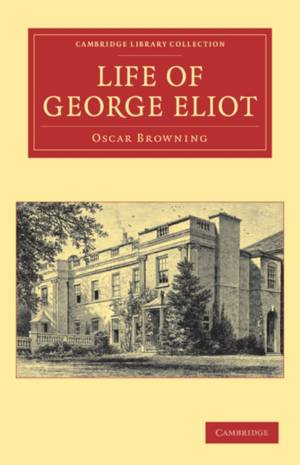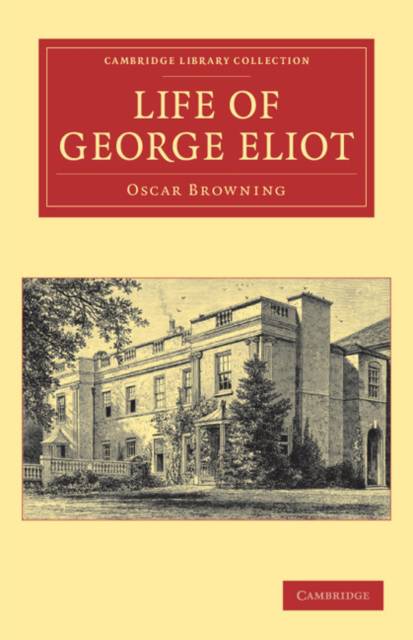
Je cadeautjes zeker op tijd in huis hebben voor de feestdagen? Kom langs in onze winkels en vind het perfecte geschenk!
- Afhalen na 1 uur in een winkel met voorraad
- Gratis thuislevering in België vanaf € 30
- Ruim aanbod met 7 miljoen producten
Je cadeautjes zeker op tijd in huis hebben voor de feestdagen? Kom langs in onze winkels en vind het perfecte geschenk!
- Afhalen na 1 uur in een winkel met voorraad
- Gratis thuislevering in België vanaf € 30
- Ruim aanbod met 7 miljoen producten
Zoeken
Omschrijving
'George Eliot' was the pseudonym of Marian Evans (1819-80), possibly the greatest of the Victorian novelists, whose works include The Mill on the Floss (1860), Middlemarch (1871-2) and Daniel Deronda (1876). Her personal life was complex - she was an independent woman who challenged social conventions. Her friend, Eton master and historian Oscar Browning (1837-1923), was moved to write this affectionate assessment of her life, and it was published in 1890, offering 'no claims ... but a friendship of fifteen years, and a deep and unswerving devotion to her mind and character'. Browning takes a chronological approach, focusing mainly on the beginnings of Eliot's writing career and on her novels, while adding recollections of their encounters. He also writes with candour about Eliot's relationship and cohabitation with the married writer G. H. Lewes (1817-78), which transgressed the social norms of the period.
Specificaties
Betrokkenen
- Auteur(s):
- Uitgeverij:
Inhoud
- Aantal bladzijden:
- 194
- Taal:
- Engels
- Reeks:
Eigenschappen
- Productcode (EAN):
- 9781108040495
- Verschijningsdatum:
- 8/12/2011
- Uitvoering:
- Paperback
- Formaat:
- Trade paperback (VS)
- Afmetingen:
- 140 mm x 216 mm
- Gewicht:
- 254 g

Alleen bij Standaard Boekhandel
+ 112 punten op je klantenkaart van Standaard Boekhandel
Beoordelingen
We publiceren alleen reviews die voldoen aan de voorwaarden voor reviews. Bekijk onze voorwaarden voor reviews.









